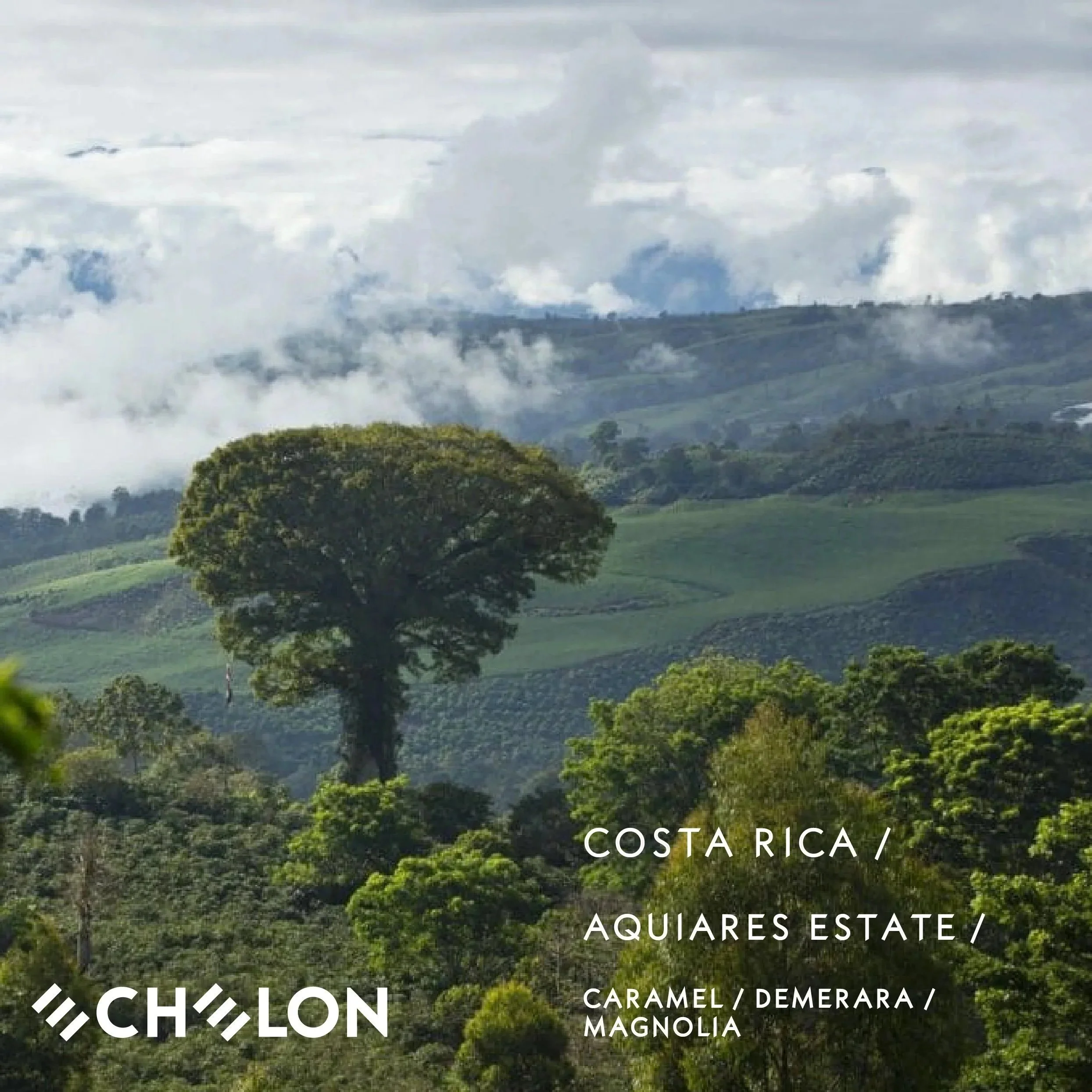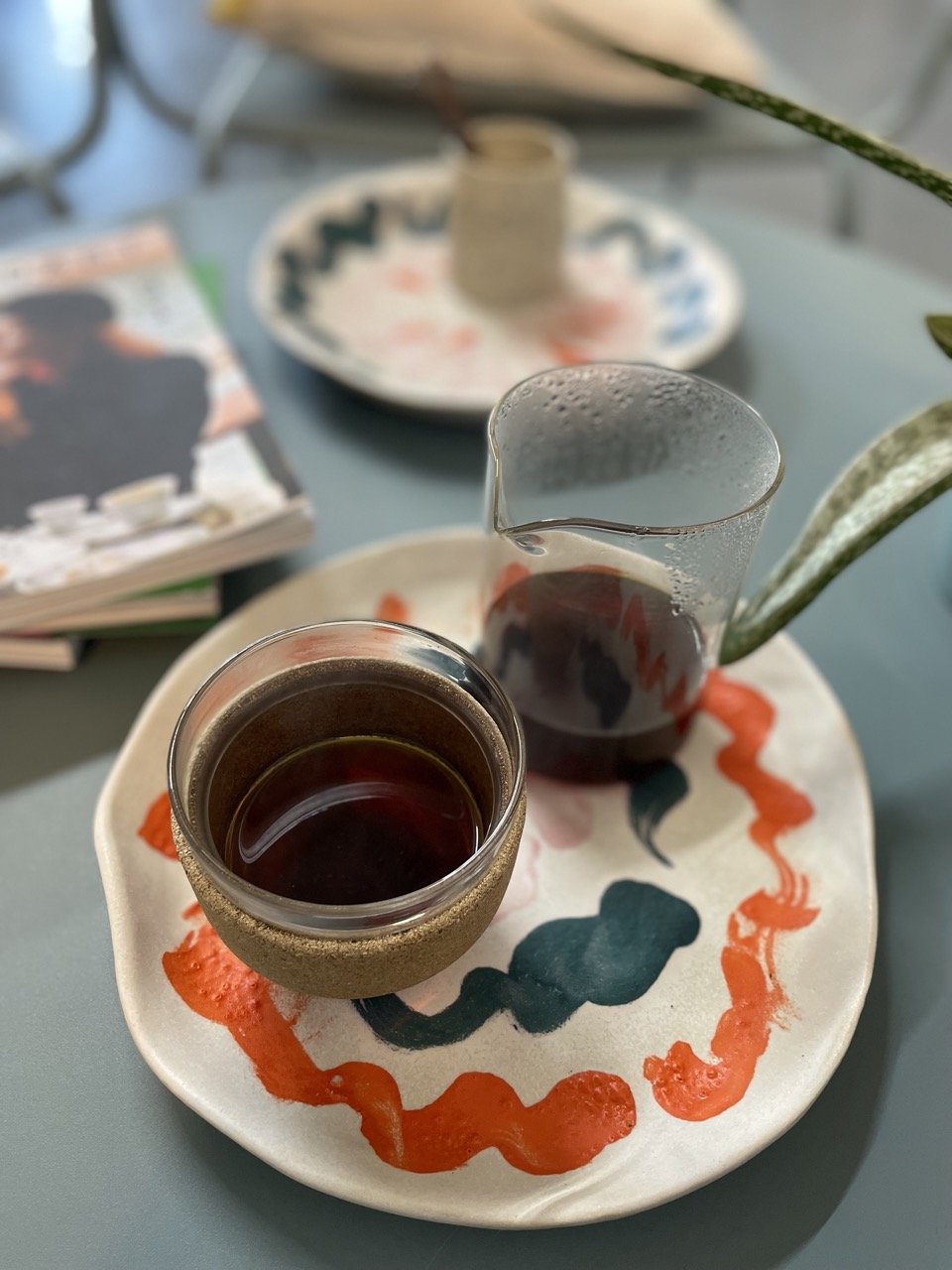Costa Rica - Aquiares Estate


Costa Rica - Aquiares Estate
Origin - Costa Rica
Region - Turrialba, Cartago
Process - “African” Washed
Producer - Robelo family, Aquiares Estate
Altitude - 1200m
Variety - Esperanza
Tasting notes - Caramel, demerara, magnolia
Aquiares Estate, nestled on the slopes of Costa Rica’s Turrialba volcano, is the country’s largest coffee farm and one of its most historic. Founded in 1890, the 924-hectare estate has produced coffee for over a century while preserving ecosystems and supporting a thriving community of 1,800 residents.
The name “Aquiares,” meaning “land between rivers” in the Huetar indigenous language, reflects the estate’s unique geography. Natural springs and rivers run through the land, protected by forested buffers that support biodiversity and supply clean water to neighboring communities.
Environmental stewardship is central to the estate’s mission. Over 50,000 shade trees, integrated pest management, and soil health practices have earned Aquiares Rainforest Alliance certification since 2003. It became Costa Rica’s first Climate Module certified farm in 2012 and is now carbon-negative. Aquiares also serves as the main research site for the Carbon-Flux Project, a collaboration with CIRAD and CATIE, helping to model carbon sequestration for shaded coffee farms worldwide.
Since Don Alfonso Robelo assumed management in 1992, social impact has been a priority. His landmark housing program enabled workers to become homeowners, creating long-term security. Today, 96% of residents own their homes, and the village features a school, health programs, youth sports, and a historic church.
This lot features Esperanza, a Caturra / Ethiopia 531 hybrid known for high quality and disease resistance, grown above 1,200m altitude. Aquiares oversees the full coffee production chain from seedling to export. All coffee is hand-harvested by skilled pickers, with microlots collected by select teams who revisit trees up to seven times to ensure ripeness.
The cherries are floated to remove defects, depulped using a Penagos machine, and fermented in spring water tanks for two days a method inspired by African Washed processing. After fermentation, the beans are washed and dried slowly at 45 -55°C in mechanical dryers with scheduled cooling breaks, resulting in a clean, vibrant cup.
Innovation drives Aquiares’ processing success. A custom drying greenhouse retrofitted from a rose farm and connected to a Guardiola dryer provides a consistent 36°C environment, enabling honey and natural process production despite the region’s humidity.
